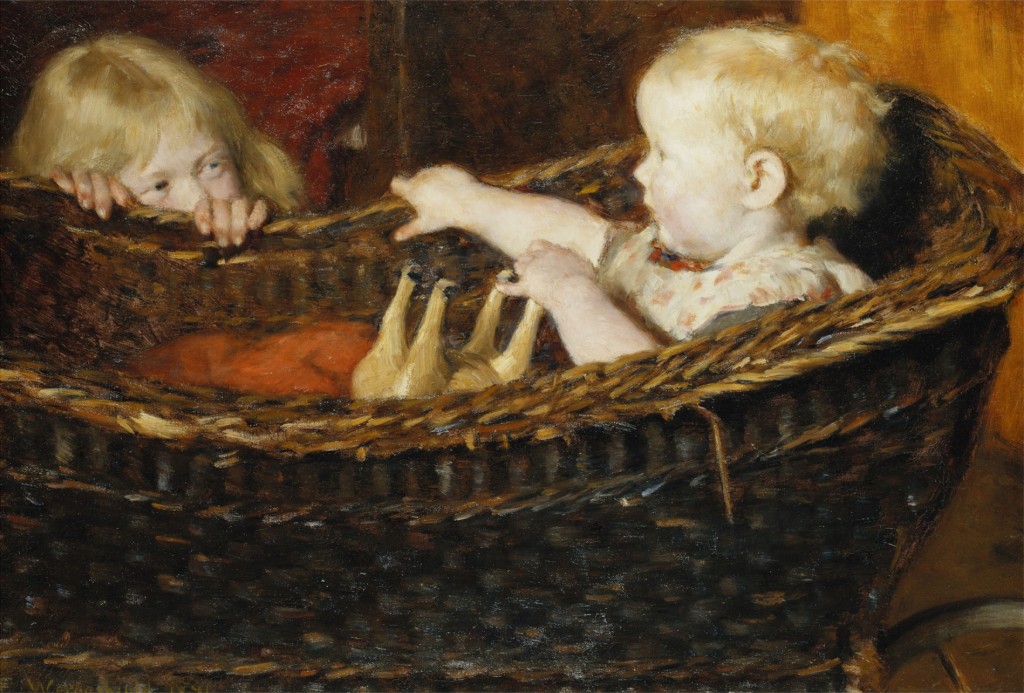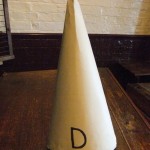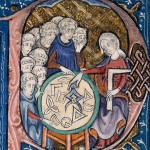Thanks to a friend’s commentary, I happened upon Alanna Weissman’s piece in Salon from last October, “I hate your kids. And I’m not sorry.” Though I am a feminist, and not especially nurturing – and though I have often criticized a culture that reduces female-ness to motherhood – and though I think there’s a danger of treating adults as a means to the end of reproduction – I could not be impressed with the strident baby-hating.
In fact, I was appalled.
And that is not because I think children are universally adorable, or because I want to spend all my time with them. I don’t. Children, like all humans, are a varied lot, and I like some of them, while others irritate me. Obviously, I love my own children, but I still look forward to having time to myself – and, I don’t think it would be good for their development if I leeched upon them wholly for my own “identity.” My son is not reducible to “son of Rebecca” – so it would be a little off-base if I were reducible to “mother of my son.” It’s not because I think children are perfect and innocent: there are times when I completely agree with St. Augustine when he identified the mark or original sin in a baby’s cry.
No, I was appalled first of all because I am very wary of any attitude that accepts the radical dehumanization of any demographic. This includes racism, sexism, xenophobia, and any ideology that justifies hatred toward a class of humans. I would go even further and say that I oppose any ideology that justifies hatred against any living thing. Babies might not be to your taste, but this is a case in which your taste does not give you the right to be nasty. The right of another human to respect is more important than your petty dislike.
Take this statement from the piece:
I can’t remember a time when I felt anything more positive than contempt for children, even when I was a child myself. From (quite literally) the time I could talk, I announced my intent that I never wanted children, and as a little girl, I never had even the slightest inclination towards baby dolls. As an only child of older parents, I spent much of my time around middle-aged adults, and found I far preferred their company to that of my agemates.
Now, replace the word “children” with “black people” or “Muslims” or “the handicapped.” Is this a hatred of which anyone could be proud? Is it even remotely acceptable? If it’s not okay to hate one group of people, why would it be at all okay to hate another – especially a group that is especially vulnerable, and to which each of us once belonged.
Or take this passage:
My baby-hating doesn’t come from a place of malice. I don’t wish children ill; I just want them to stay the hell away from me. I’m not a situational baby-hater, either; though a child behaving badly might cause me to shoot some side-eye or make a snarky comment, my inherent dislike of children does not significantly lessen when a kid behaves well, even if I do find them slightly more tolerable. (As Kate Christensen writes of her boyfriend in her essay in “Selfish, Shallow, and Self-Absorbed” and which I can wholeheartedly relate to, “Seeing other people with their kids, no matter how cute they are, only reinforces his knowledge that he doesn’t want them.”) I can count on one hand all the children I’ve seen in my life that have struck me as cute. On the subway, if I see even a well-behaved child heading for the empty seat next to mine, I will move across the train car, all the while raising the volume on my music. On a recent outing to the Bronx Zoo, a small child mistakenly grabbed my hand instead of her mother’s, and I instinctively recoiled as if the toddler’s touch had sent 10,000 volts of electricity coursing through my body.
I’ve heard similar statements from people who “don’t wish black people ill” but simply want to stay far away from them. I’m not inclined to give them leeway for their immature and poorly formed affections, nor will I do so for baby-haters.
I recognize that not everyone is cut out for parenthood, and that there are many other valuable and noble things both men and women can do, beyond reproduction and / or childcare. Women in particular need to be freed from a mindset that values us only for our reproductive powers. However, the lack of a vocation to parenthood should not be taken as an excuse to dehumanize and denigrate a whole huge chunk of the populace. If all you can think about when you see another human is “I’m glad I don’t have them” – this sure sounds like narcissism to me. There’s far more to any person than the question of how you could use, or not use, or enjoy, or not enjoy them.
Also, the way in which children are treated by adults, even casually and in passing, influences the kind of adults they become. If you want to build a world with more peace and friendship, less violence and prejudice, treat children kindly. I don’t care whether you enjoy it or not.
And that’s the second reason why I am appalled: because prejudice against children is prejudice directed against humans at their most malleable, their most sensitive. How you treat children has a lasting effect on them, so you need to think very carefully about the moral implications of how you regard them, whether you get your kicks out of it or not.
Three more speculative points I’d like to add:
- Some might be inclined to think baby-hating is a new phenomenon, connected with a pro-abortive anti-life attitude. I want to note that most pro-choice persons I know do not hate babies, and many have children of their own whom they love. Also, that baby-hating is in fact a very old phenomenon – and this is why I find it so appalling, because it’s not some new invention of a free-thinking woman, it’s an ancient prejudice of a violent civilization. When the baby was considered only a miniature potential adult, the practice of exposing deformed or unwanted infants was normal. The casual disposal of unwanted children by adults is one reason why there are so many ghastly stories about witches eating children, stepmothers killing children – and, in fact, in the original version of many stories, it wasn’t stepmothers, but mothers: the details were changed in order not to overwhelm the sensibilities of a rising middle class reading public.
- This same rising middle class would end up yielding what has sometimes been referred to as the Victorian invention of childhood. Ironically, at the same time that middle and upper class Victorian children were either vigorously disciplined or coddled and idealized or both (while usually being raised by a whole staff of professionals, rarely by their parents), pauper and orphan children were treated as the dregs of society, grist for the mills of the industrial revolution. In some cases, orphan children were even experimented on, in the controversial practice of vivisection. While aristocratic and middle-class families required a moderate number of children for the security of inheritance (not too many, though, because splitting an estate was undesirable – and preferably a minimum of girls, because of the expense of their dowries), poor families did not, as a rule, look at children as a blessing. The significant exception would be farm families, in which everyone (father, mother, children, retainers) was expected to work for a living. The 1950s familial ideal of dad working, while mom simply raises the children was only a brief blip in the history of family life. Returning to that an ideal is not a fix for the problem of baby-hating, especially since at that time the “family values” enjoyed by the white middle class were denied black families. We need to consider the extent to which we regularly dehumanize any group of people who inconveniences us: children, the handicapped, the poor, the elderly, the immigrants.
- Contemporary baby-hating of the sort seen in Weissman’s piece seems especially vile because its the subject of such narcissistic preening. However, I wonder whether this is just the other side of the coin of the fetishization of children and motherhood, in which the baby becomes a kind of accessory – or, a way for a woman to prove her “identity” as mother – or, worst of all, a weapon specially bred for the culture war. Occasionally I have heard religious people talking about the importance of having big families so that we can, essentially, out-breed the secular humanists. How is this not using a child as a means to an end? Fellow Christians and pro-lifers, if we insist on treating children as objects (even treasured objects) we have less ground to stand on, when we oppose those who treat them as unwanted or unpleasant objects.
On a lighter note, is it terrible that I am amusing myself with the image of my youngest – aka, the Viking – going all Rage of Achilles on some smug baby-hater? Probably. Still. I can just see him, chasing her down the garden path, with his Hammer of Thor. It’s kind of beautiful. Sorry (I think).
image credit: https://commons.wikimedia.org/wiki/File:Erik_Theodor_Werenskiold_-_Children_playing_(1891).jpg. public domain













